
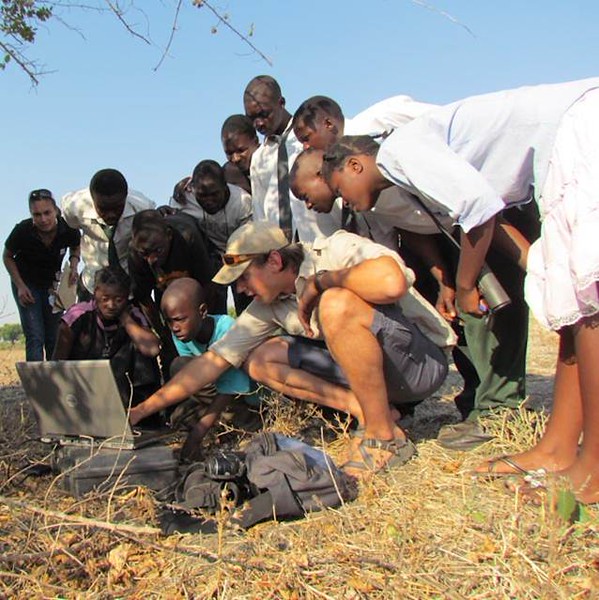
About
Here you can find out about us and our partners, the Zambian School system and how we we fit. We've also listed some achievements by students which are astounding. They more than justify the investment made in them.
The Zambian School System
Zambian children start state funded schooling at seven years old (Grade 1) and continue to age 14 (Grade 7). Thereafter pupils have to pay their own way.
Grades 8 and 9 are known as Junior Secondary and end with the child sitting the Certificate of Primary Education (CPE).
Children who gain a good CPE are eligible to continue to Senior Secondary Education [Grades 10 to 12] when they sit the Zambian School Examination Certificate.
Few families can afford all or any of their children to complete what in the West would be a state funded education. In recognition of this many NGOís have stepped in to fill the gap, benefiting thousands of children every year.
The Fund's role
Even so very few children can continue to tertiary education or training, but those that do are extremely well motivated and that is where we come in.
Zambia and its wild life need trained and educated people. The least likely children to go on to further education are the poorest in rural areas, but that is where humans make the biggest impact on the environment. We sponsor the brightest and most motivated students to continue their studies in environment and conservation. These children can then return and make a valuable contribution.
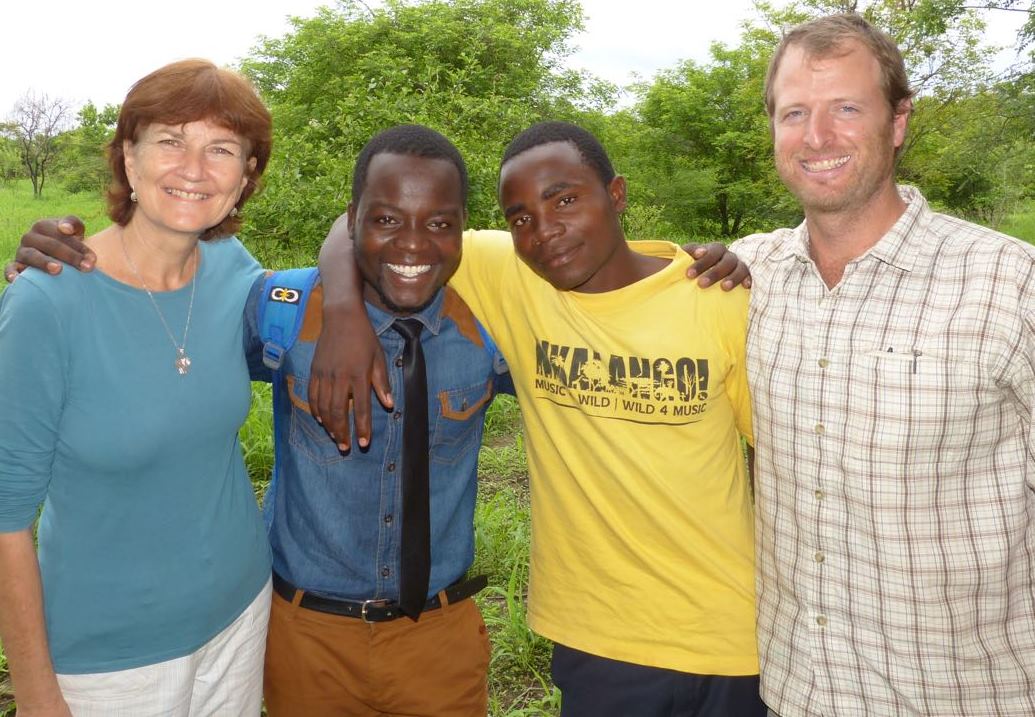
About us and our partners
We have teamed up with some of Zambia's most prominent conservation organisations and people. This gives us excellent exposure to Zambiaís continuously evolving conservation needs.
Our partners
Chipembele Wildlife Education Trust (CWET) Anna Tolan
Conservation Lower Zambezi (CLZ) Ian Stevenson
CWET and CLZ are deeply involved with their local areas and run educational courses in Environment and Conservation, seeing hundreds of school children on a regular basis. This gives them a close knowledge of the pupils.This knowledge enables them to identify appropriately talented and emotionally able children to go on to higher education. Our students are selected from the pupils they identify. Once selected the children are mentored and monitered through their courses. Students are well motivated to succeed as success is life changing for them as well as beneficial to wildlife. To date these schemes have produced zero drop out, with some students achieving great things. Some examples are below
Our trustees
Andrew Fenner (UK) Business owner with interests in both Zambia and South Africa. Now back in the UK, Andy was based in Cape Town for many years and travelled over much of Southern Africa during that time. Still a frequent visitor to both Zambia and South Africa, he is familiar with conservation issues in both countries.
Carol Fenner (UK) Retired Midwifery Sister and district Midwife, has volunteered in Zambia as a midwife.
Michael Fenner (UK) Now mostly retired, Mike is our CEO. He was formerly European Technical Manager of the Indium Corporation and first Financial Director and Vice-Chairman of the UK's SMART Group, the largest Trade Association of its type in Europe.
Rachel McRobb (Zambia) CEO Conservation South Luangwa (CSL) Rachel co-founded CSL as South Luangwa Conservation Society and drove its growth to its present prominence.
Special Advisor to the Board
Dr Matthew Becker (Zambia) CEO Zambia Carnivore Programme. Matt Joined ZCP in 2008 as CEO after several years working in North America and Antarctica as well as Africa. He has worked in numerous fields and is a recognised specialist in predator-prey dynamics, conservation biology and behavioural ecology.
Student accomplishements
Chombe
Outreach worker. Chombe earned a diploma in Forestry and now works in the local communities teaching the benefits of conservation and advising on local tree planting and other environmental initiatives,
Thandiwe
Now a Chipembele Trustee and successfully studied for a Masters in Arizona. Her thesis concerned the affects of hunting prime male lions on breeding patterns.
Thandiwe works as a field researcher in South Luangwa and takes students into the Park to teach scientific research methods.
Henry
Field researcher with ZCP. Henry also takes students into the Park to teach scientific research methods on wildlife and the environment.
Kennedy
Senior Conservation Educator supervising 4 other Educators.
Notably Kennedy was one of only thirty young people from around the world to attend the first International Fund for Animal Welfare World Youth Forum in Johannesburg.
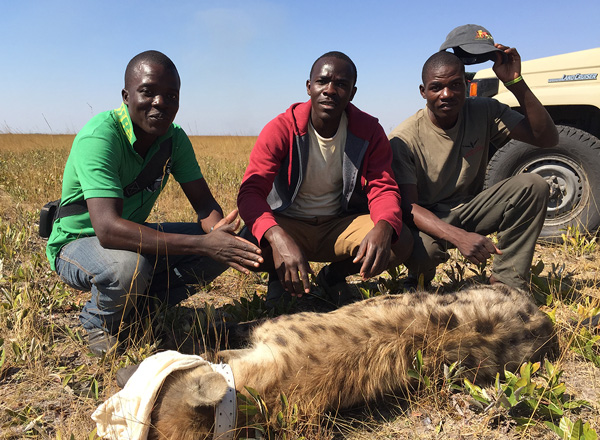
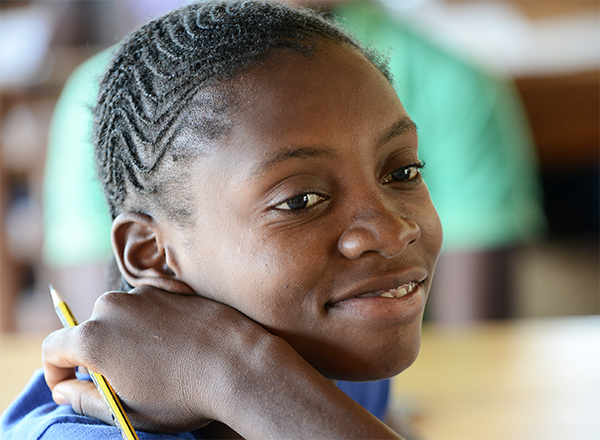
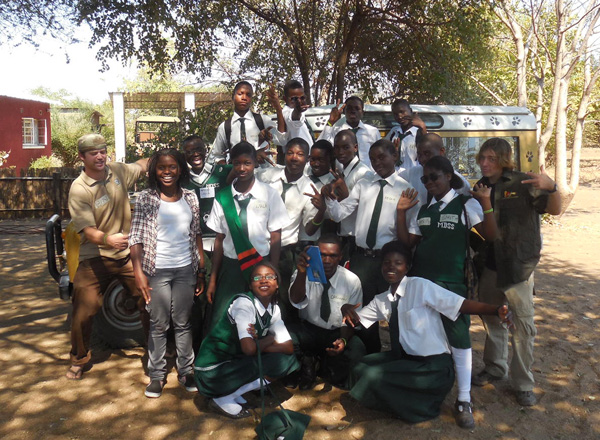
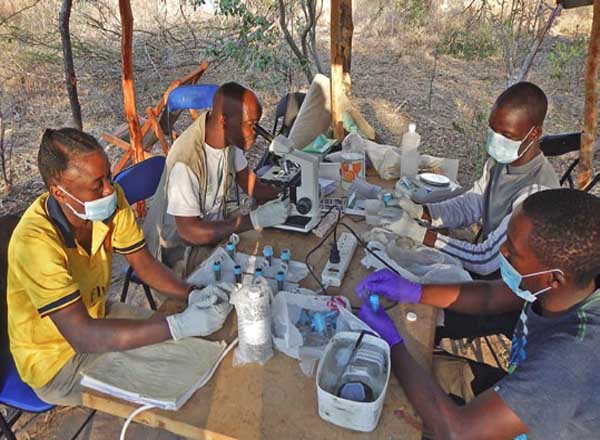
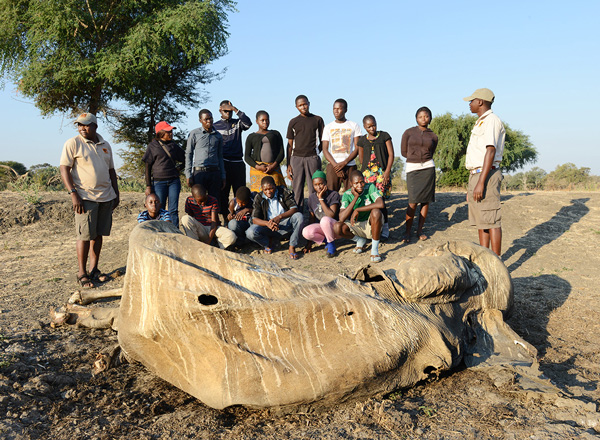
Sponsorship costs
Sponsorship costs vary widely according to whether certificate/diploma/degree, the duration of the course and type of institution (Government or private University or college) but degree courses are in the region of $3500 to $5000/year (including all expenses such as fees, transport, accommodation, food, suitcase, stationery and any other college requirements).
Conservation Scholarships to the Southern African Wildlife College in Kruger National Park, South Africa for 6 month courses on Nature Conservation and Education are currently approximately $5000.
Cost of a 6 month Environmental Educators course at the Southern African Wildlife College including all expenses to obtain passport and visa, return travel, accommodation en route, course fees, stationery, manuals, food and accommodation, warm clothing, boots and suitcase, pocket money for the duration of the course etc is $6000. Certificate awarded.
Cost of a 1 year course in Nature Conservation (Implementation and Leadership), $8000
Students are chosen on merit in consultation with the teachers and partner organisations; we do not accept direct applications. Nearly all the students selected are orphans from poor backgrounds with nobody working in the family. This is why we have to supply everything they need from pencils and shoes to books and food. We budget and commit funds in November each year. Student selection can then start in December ready for the academic year starting January.